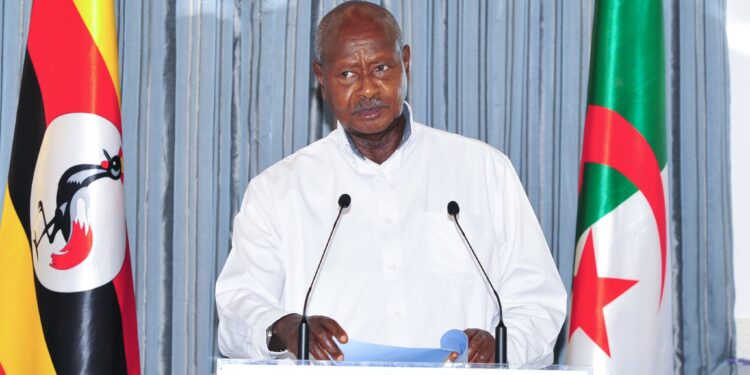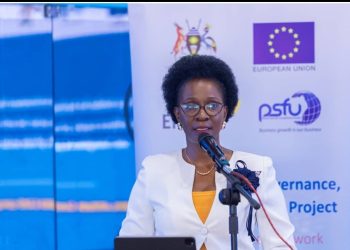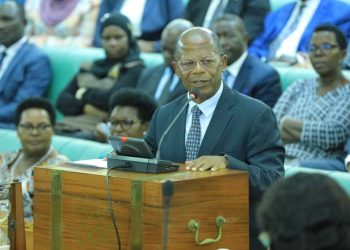Uganda’s President, Yoweri Museveni, has issued a directive requiring visitors to recreational venues and places of worship to present their national identity cards before gaining access.
This measure is aimed at preventing the infiltration of suspected terrorists, particularly members of the Allied Democratic Forces (ADF), and thwarting potential attacks.
President Museveni emphasized the importance of enforcing identification procedures at public places to deter ADF rebels and other terrorists from finding safe havens for their activities.
He urged citizens to be vigilant, challenge and report any unfamiliar individuals in their communities, and restrict access to their churches and social establishments.
The President also extended the identification requirement to hotels, lodges, real estate properties, markets, and buses, emphasizing the need for thorough searches in these areas to enhance security.
He stressed the urgency of these measures, acknowledging the desperation of potential threats.
The President’s directives come in the wake of the recent arrest of seven individuals suspected of terrorist activities. Security forces uncovered six explosive devices that the suspects allegedly intended to use for attacks.
One of the explosives was safely detonated at the Rubaga Miracle Centre Cathedral. The police attributed these foiled attacks to the ADF.
While President Museveni’s directives regarding worship centers pose challenges, especially in urban areas where congregants often do not know each other, he stressed the importance of vigilance.
Most Pentecostal churches and mosques welcome attendees irrespective of their membership status, making thorough identification checks more challenging.
Additionally, the President instructed the police to provide training to hotel and lodge managers on documenting all visitors and verifying their identities using national ID cards.
President Museveni also shared the progress of Operation Shujaa in the eastern Democratic Republic of Congo (DRC), revealing that 567 rebels have been killed, 50 captured, 157 guns recovered, and 207 abducted individuals rescued since its initiation in 2021.
Uganda and the DRC recently strengthened their military cooperation against the ADF.
Regarding amnesty for ADF rebels who surrender, President Museveni ruled out immediate forgiveness, particularly for hardcore individuals responsible for heinous acts.
He emphasized the need for accountability, indicating that convicted rebels could face prison sentences. However, he left open the possibility of later pardon or reduced punishment.
This marks a departure from previous amnesty offers to ADF rebels, as President Museveni acknowledged the severity of their actions and provocations.
Despite the terror threats, he reassured the public that this represents the “tail end” of the ADF’s activities.
































































